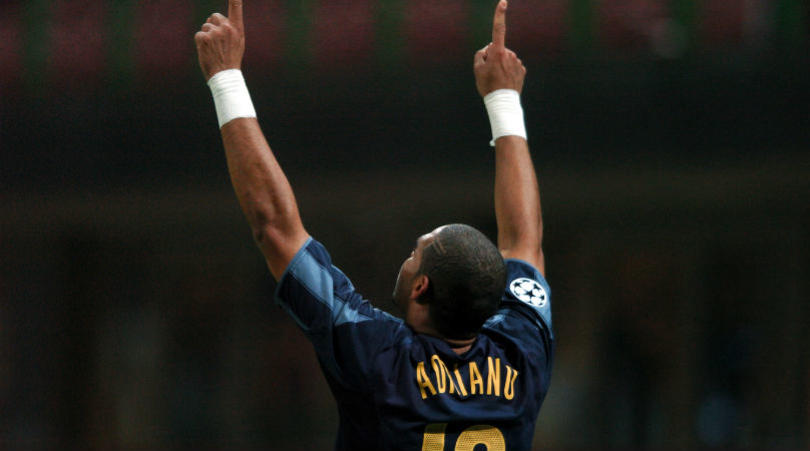What’s it like to control Match of the Day? FourFourTwo finds out...
Paul Armstrong edited British sport’s most beloved TV show for 16 years, and tells Conor Pope about the pitfalls of running orders, progressive punditry… and a hungover Alan Hansen
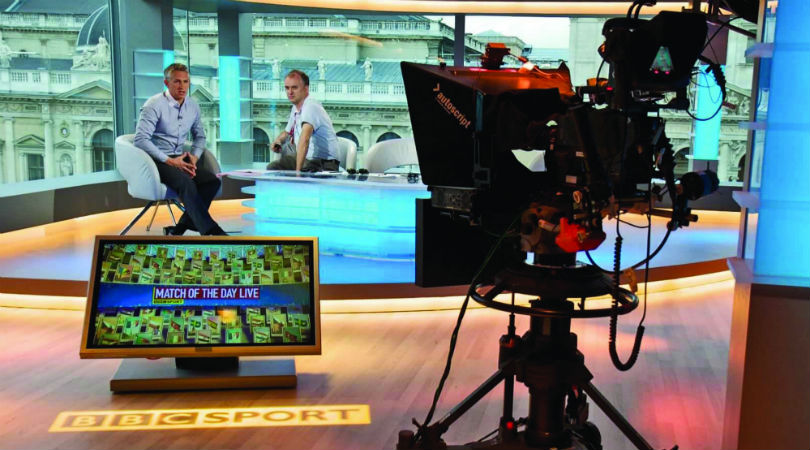
When the Premier League launched in 1992, it wasn’t just the introduction of Sky TV’s new monopoly on live fixtures that transformed the way football was consumed at home.
Sky’s bid for the league’s television package was done in agreement with the BBC, which would have first choice on all highlights of matches not being shown live on the subscription-only service.
After four years without top division league football rights, the BBC could bring Match of the Day back to Saturday nights.
This, in part, was due to a calculation made by the Premier League: selling off all live rights to a pay-only channel could risk diminishing interest in the product unless plenty of action was also available on terrestrial television. Sky would need to partner up with one of the free-to-air broadcasters.
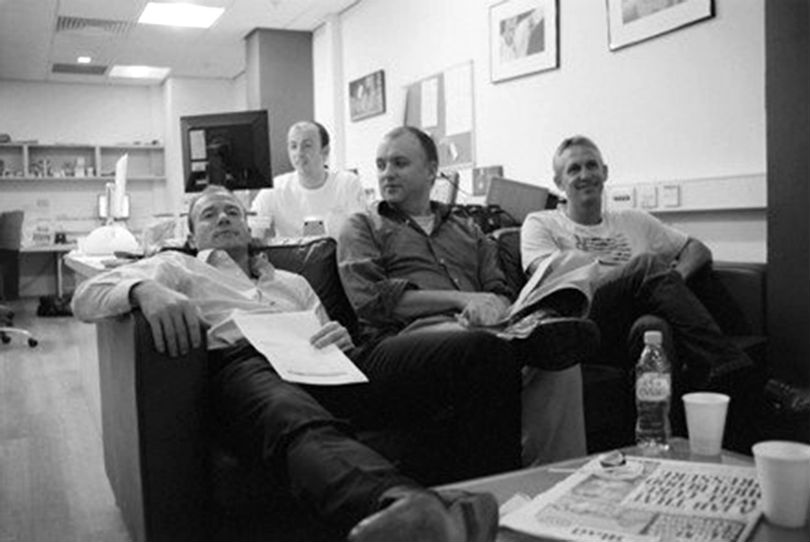
A potential joint bid between ITV and the BBC would have given the latter only two matches available for highlights on Saturday – as previous incarnations of MOTD had. Sky’s counter offer to the BBC, gifting the public broadcaster essentially all highlights right for a fraction of the £200m it was prepared to pay for live footage, was revolutionary for football round-up shows, as well as what its own output achieved.
While the show – and its theme tune – had already earned a place in the national psyche since it first aired in 1964, it’s in the Premier League era where it has become a jingle-happy juggernaut. From covering just two games a week, then progressing to a round-up of goals from the other matches, each match now gets a full section to itself, making it unmissable viewing for Premier League addicts.
But what was that journey like? And how is an episode put together?
Get FourFourTwo Newsletter
The best features, fun and footballing quizzes, straight to your inbox every week.
Thank god it’s Friday
Paul Armstrong – who edited MOTD for 16 years, and has written a new book, Why Are We Always On Last?, about the experience, tells FFT that nobody works solely on the programme throughout the week. During his time there, between 2000 and 2016, it would be him who starts putting together how he thinks the running order will look.
“I used to do the dummy run on a Friday, which would just be [based on] if everything goes according to the form book,” he explains. Often, this can be quite simple. “Particularly at this stage of the season, the title race is probably going to be first.
“Early in the season actually, it's a blank piece of paper. On the first day you might look at the promoted teams, but it really was quite results driven.”
Saturday is bustling from the start, with Football Focus, Final Score and Match of the Day all sharing a studio – resulting in a hubbub of editors, producers, presenters and pundits sharing ideas, analysis and football gossip as all of the games are shown. As Armstrong suggests, it’s like watching the football “with the best-informed bunch of mates imaginable”.
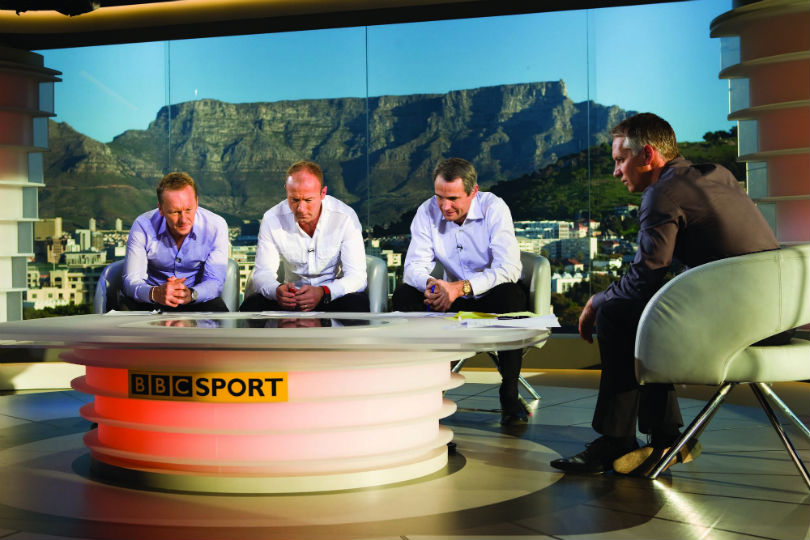
The evening’s pundits – these days, usually staple Alan Shearer and one of a regular roster of ex-players – arrive for the early kick off. “They're always in for the whole duration basically. They come in and they watch the first game intently, then the 5:15pm game intently.”
Come 3pm there are normally around five Premier League games, which poses an obvious challenge for people who have to analyse each one later that day. “For three o'clock matches you have two main monitors, so they watch a game each – but you've got everything else on as well.”
Handily, that means that for all of the big action points – goals, penalties, sendings off and more – everyone can watch things unfold live.
“Thanks, Steve Bruce”
While the editor tries to keep eyes on everything at once, to ensure each match gets the scrutiny it deserves, they all get a personal producer. “There's one person editing each match in a separate channel, only watching that game, and they're communicating with the commentator.”
The commentators themselves, familiar voices such as Jonathan Pearce and Guy Mowbray, help play a role in determining what those in the studio should look out for.
“I always talk to the commentator after the game, to ask them what caught their eye,” say Armstrong. Even managers can prove helpful in their post-match interviews. “Sometimes Steve Bruce or someone might say ‘I think that’ll be last on Match of the Day’, and I’d think ‘Right, thanks, we’ll put that last’.”
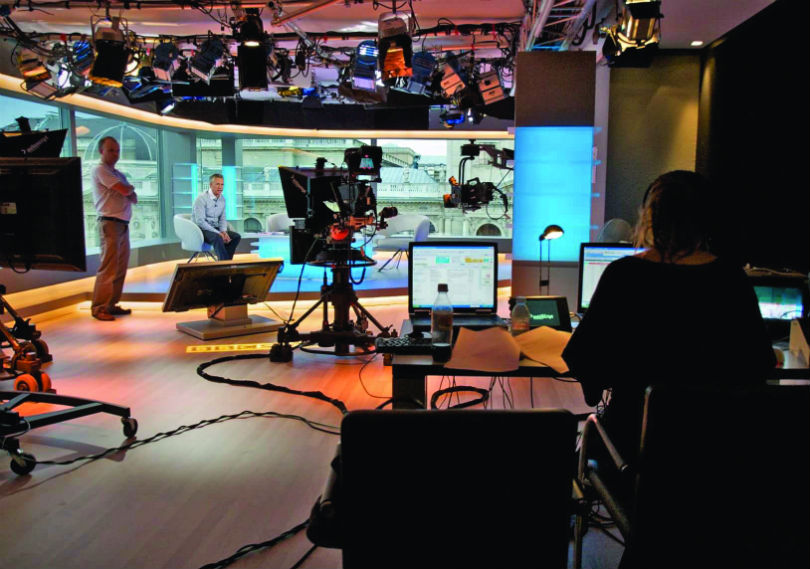
Once the late kick-off is finished around 7pm, everyone has a rough idea of what the show will look like. “The running order will be pretty much nailed down as soon as the 5:30pm games are over,” he says. With Twitter, it now essentially gets set in stone as Gary Lineker announces it to the world. “That's when Gary now tweets it, and that's unlikely to change.”
“Are we on air?”
“It's usually pretty much set at nine o'clock.” Until the inevitable happens of course, and the perils of live television take over. “Then of course you get it wrong; you mess up on the air and the duration is shifted.”
This can cause other issues. The first casualty of running over is usually in-studio analysis of later games. “Suddenly then I'm asking somebody ‘Can you just sum that up in 20 seconds? I was going to give you a minute-and-a-half.’” Armstrong believes this is the cause of some criticism that the pundits get. “They look glib, or like they haven’t much to say. It’s actually me; it’s an editorial decision.”
The pressure to get things right live can be too much even for seasoned professionals. Alan Hansen regularly suffered from pre-air nerves, despite doing the job for over two decades.
During one FA Cup tie at Molineux in the mid-2000s, a sanguine (and, according to Armstrong, “possibly slightly hungover”) Hansen failed to respond to any of Lineker’s scripted cues. Eventually, he asked “Are we on air?” Armstrong recalls his earpiece response contained at least one expletive.
The 1998 World Cup brought a more bizarre moment when Port Vale fan Robbie Williams appeared on a BBC chair. After joking that Martin O’Neill, a pundit that day, was “idle”, O’Neill replied that Williams had done well post-Take That, given that he “can’t write [and] can’t play guitar”. Armstrong fondly remembers that O’Neill was kidding. Williams’s face disagreed.
Avoiding such scenarios by pre-recording, however, also has its problems. “Pre-recording incredibly dates it,” says Armstrong. “That used to happen occasionally, like a bank holiday. But,” he pauses, aghast, “a manager might get sacked...”
This also helps explain the late starting time. “The reason it’s done live is that it gives us as much time as possible to make some sense of it all, and hopefully by half past 10 you haven't really missed anything.”
This was apparent during the three-year period when ITV won the rights to top division highlights, and its own offering, The Premiership, was moved to a primetime 7pm start. Its ratings failed to match up to Blind Date, which it had replaced in the slot, or its rival The Weakest Link on BBC One. It was soon shifted back to post-10pm.
Not-so-niche
As well as the pitfalls of being live, the analysts also have to bear in mind that being on BBC One means they are talking to a “more general audience” than those on other channels. Armstrong says the likes of Sky’s Gary Neville and Jamie Carragher are “fantastic”, but argues that those on the MOTD sofa “haven't got half an hour, and it's not a specialist niche audience”.
However, he maintains that the analysis has come far in the last two decades.
“If you look at punditry when I first joined it was so simplistic compared to what it is now. The coverage wasn't that great so you would tend to just have analysis of the goals, particularly when we had roundups and you're running on single camera coverage.”
He claims that some recent ex-professionals can limit themselves in their critique of matches, singling out Shearer as someone who has developed as a pundit. “You start off being fairly functional and fairly straightforward, and you’re little bit worried because you think 'I played with some of these guys; I might want to go back into management',” he says.
“But once he [Shearer] decided he didn't want to go back into management, we started seeing the guy that we all knew: funny and free say what he wants.”
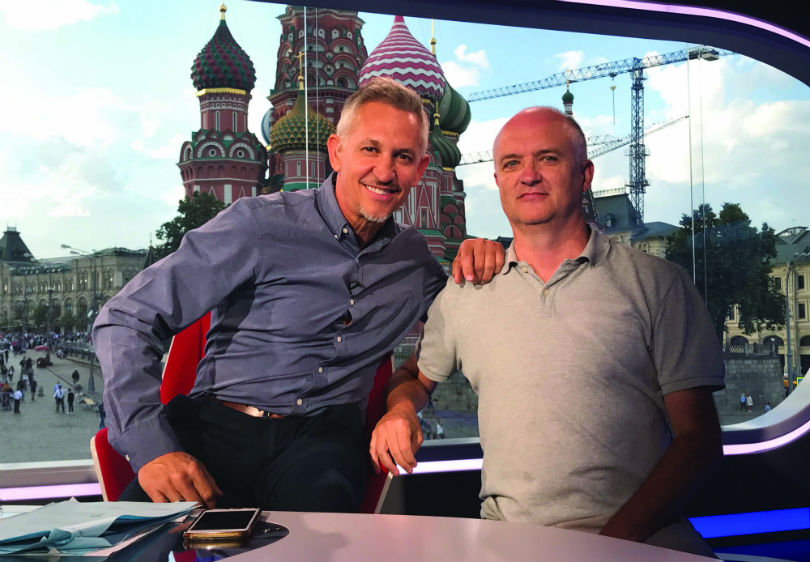
Greater variety – the roster stretched to Jimmy Hill, Trevor Brooking and Alan Hansen when Armstrong first started on staff – has also been a boost, ensuring that viewers are “not getting the same people saying the same thing week after week”. The evergreen Lineker, however, will celebrate 20 years in the presenter’s chair this year.
The biggest drawback, according to Armstrong, remains the focus on refereeing decisions. “Doing the editing, you think ‘not more of this’, because you get three or four [contentious decisions] a week. You’re thinking, ‘well, half my analysis time is about refereeing decisions’.”
But while referees’ mistakes cost teams, we’re unlikely to see less of it on our screens: “I'd rather have analysed the football, buf if it's a really big one it’s hard because you can't ignore it.”
Given that its current incarnation started as a way to give Sky Sports the nod in the race for live rights, it seems surprising that MOTD has outlasted the stranglehold on live coverage. The advent of choice, and the potential to watch much more football in a weekend than ever before, has not dimmed its popularity.
The key, for Armstrong at least, is arrestingly simple: “Match of the Day has lasted longer than I think anybody thought it ever would because you need somewhere to watch it all.”
And long may it continue...
Why Are We Always On Last? Running Match of the Day and Other Adventures in TVFootball,by Paul Armstrong, is out now

Conor Pope is the former Online Editor of FourFourTwo, overseeing all digital content. He plays football regularly, and has a large, discerning and ever-growing collection of football shirts from around the world.
He supports Blackburn Rovers and holds a season ticket with south London non-league side Dulwich Hamlet. His main football passions include Tugay, the San Siro and only using a winter ball when it snows.
